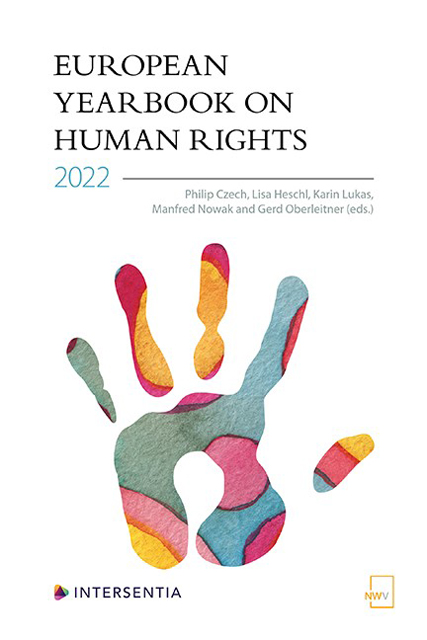Joy Liddicoat: Human Rights and the Internet
Published online by Cambridge University Press: 20 April 2023
Summary
Cambridge/Antwerp/Chicago, Intersentia, 2021, 184 pages, £ 47
The meaning of human rights for the Internet, with its diverse landscape of stakeholders, often seems like an opaque, overwhelming issue for those who approach it for the first time. Joy Liddicoat’s endeavour of delivering an easily accessible, yet highly instructive publication on the online dimensions of human rights is hence a welcome door-opener to an ever-growing body of academic analyses and policy discussions on the topic.
The author, sharing her specialist legal expertise and practical experience, succeeds in presenting complex interplays of technology, law and societies in an easily understandable, yet accurate, manner. The publication does so in a systematic way, structuring its contents in a layered manner from bottom (foundations) to top (current challenges). The first chapter of Human Rights and the Internet deals with conceptual and historical issues like the genesis of the Internet, its functioning, and the international human rights system as such. The chapter also discusses first points of contact between the Internet and human rights, such as John Perry Barlow’s ‘Declaration of Independence for the Internet’.
The temporal focus of the second chapter lies on the time period after 2011, when the Internet experienced, in the author’s words, its ‘Big Bang’ moment. This rapid emergence of new technological features, such as broadband connections, led to new phenomena such as email surveillance, information filtering, and the criminalisation of online behaviour, which the author discusses in case studies in the third section of this chapter. The chapter also provides insights into the socio-political role of the Internet and the emergence of its co-governance by states and private entities.
In Chapter 3, the author lays out a simple working definition for what constitutes a human rights violation, for the sake of the following sections. Based on a three-pronged approach of the existence of a defined right, a harm done contrary to that right, and the existence of a legal remedy, Liddicoat then provides case studies on the pressing issues of ‘real name’ policies and the right to be forgotten.
- Type
- Chapter
- Information
- European Yearbook on Human Rights 2022 , pp. 775 - 776Publisher: IntersentiaPrint publication year: 2022

